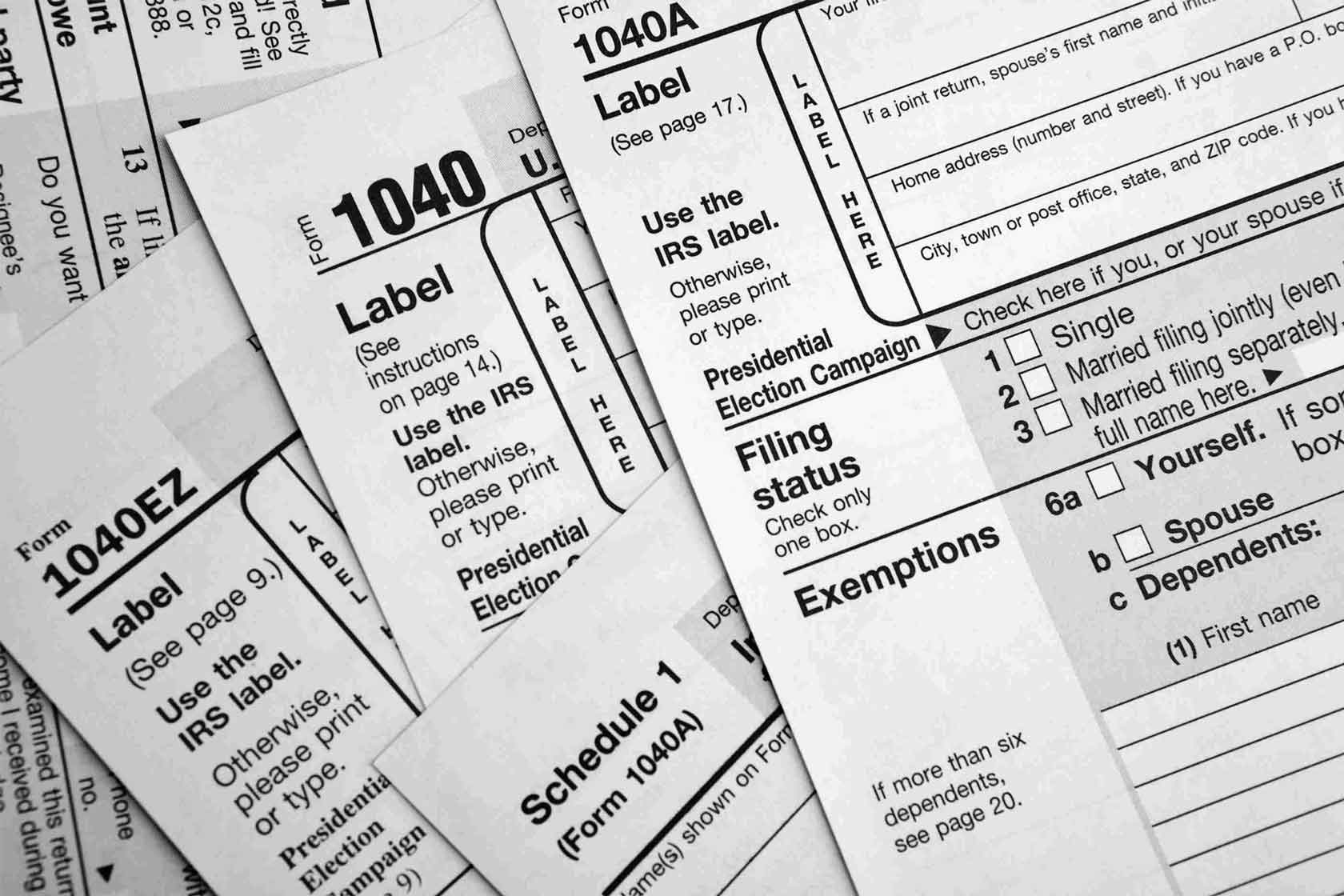
Investing in real estate can be a profitable decision. However, as with any investment, you’ll owe taxes on the revenue you generate from your real estate assets. Real estate tax deductions are expenses that reduce your taxable income, meaning you owe less in taxes. Planning ahead is the best way to optimize your tax deductions.
What Are Real Estate Tax Deductions?
Real estate tax deductions are costs that reduce your taxable income, often resulting in a lower tax bill. A qualified real estate tax deduction is any expense you incur related to real estate ownership. This might include the fees associated with buying and selling real estate assets, such as interest. It might also include any costs of owning a real estate investment, such as property management fees, repairs, depreciation, or a home office.
Key Takeaways
- Optimizing your real estate tax deductions offers many benefits, including owing less, qualifying for a larger refund, offsetting other investment losses, and maintaining your property values.
- Real estate assets qualify for many deductions, including property taxes, home improvements, property management fees, and business travel.
- Keep accurate records of all expenses throughout the year to make filing easy and to protect yourself in the event of a tax audit.
- The IRS allows investors to take a depreciation deduction with each year of ownership.
- Lease-to-own programs can reduce your taxable income and split your tax liabilities over multiple years.
Benefits of Optimizing Real Estate Tax Deductions
The many benefits to optimizing your real estate tax deductions include:
- Reducing the amount you owe: Optimizing your real estate tax deductions reduces your taxable income, which can also reduce how much you owe in taxes.
- Increasing your refund: Some filers might qualify for a refund, and optimizing your deductions can maximize the amount you receive.
- Offsetting losses: Some investments might not work out, but deductions can help you offset those losses, especially if they reduce your taxable income on more profitable assets.
- Maintaining property values: Repairs and maintenance are eligible deductions that allow you to maintain your property value while qualifying for a lower taxable income.
The more you save in taxes, the more you can apply to other investments. Diversifying your investment portfolio in real estate or other assets can help you increase your wealth.
Tax & Asset Protection Workshop
Learn about Real Estate & Asset Protection at our next
FREE LIVE STREAM
Common Real Estate Tax Deductions
Real estate assets qualify for many deductions. Some of the most common include:
Property Taxes
Most properties in the United States are subject to property taxes, which are fees a property owner pays to cover local services. Both state and local property taxes are deductible, usually up to $10,000. However, you must have already paid the taxes to qualify for property tax deductions.
Mortgage Interest
Mortgage interest is a fee lenders charge for borrowing money to buy a house. While mortgage interest rates vary between states, lenders, and your credit score, the average is somewhere around 6%. Interest can increase a mortgage payment by a few hundred dollars per month, which is deductible up to $750,000.
Home Improvement Expenses
Real estate assets require ongoing maintenance and repairs. While the IRS doesn’t allow home improvement deductions on personal residences, you can claim them on investment properties. Any money you put into your assets, including painting, carpet cleaning, plumbing, or electrical work, can be deducted from your taxes.
Property Management Fees
Some real estate investors might incur property management fees. These are fees real estate or property management firms charge to screen tenants, collect rent, manage legal disputes, and handle any routine issues with the property. Property management fees are usually a percentage of the rent each month and might be as high as 10%, leading to significant tax deductions.
Ordinary and necessary legal fees are also qualified exemptions. These might include the cost of legal representation for tax issues, filing fees, or real estate disputes.
Home Office
If your real estate investments require the use of a home office, you might be able to include it in your deductions. A space must meet specific requirements to classify as a home office, but doing so can bring down your taxable income. Other eligible deductions include home office services, such as cleaning or pest control. You can also claim office supplies, including computers, phones, paper, or folders.
Business Travel and Mileage
Some real estate investors incur travel and mileage fees. You can claim travel expenses, such as airfare, hotels, and car rentals, as long as the costs are related to your assets. You can also claim the standard mileage for miles driven to and from your assets. The standard mileage deduction varies yearly but is usually around 50 to 60 cents per mile.

Strategies to Optimize Real Estate Tax Deductions
Here are a few of the many strategies you can take advantage of to optimize real estate tax deductions:
Maximize Your Mortgage Interest
Most interest on a home loan is paid upfront, meaning if you recently purchased your asset, you might qualify for a significant deduction. Of course, unless you itemize, you can’t specifically claim mortgage interest on your tax return. Calculate your total costs for the year, including mortgage interest, and then compare that rate against the standard deduction. If your deductible costs are higher than the standard deduction, consider itemizing.
Keep Accurate Records of Expenses
The IRS requires documentation of all deductions. Keeping organized records of all expenses related to your real estate assets can help you file accurately during tax season while also ensuring you get the tax deductions you should receive. The IRS requests that filers keep records such as financial statements, receipts, canceled checks, and bills.
Deduct Investment Property Expenses
The best way to optimize your tax deductions is to make a list of all expenses. Place each expense in its associated category to add them all up. Then, double-check your bank statements and credit cards to ensure you have included all qualified costs.
Structure Your Ownership in the Right Entity
How you structure your real estate investment might also affect your available deductions. By structuring the ownership of your real estate assets in an IRA using an LLC, you might be able to shelter some tax liabilities. Structuring your real estate assets into an LLC also allows you to take personal itemized deductions that can reduce other taxable income.
Keep Track of Depreciation on Properties
Real estate assets decrease in value naturally over time. The IRS allows real estate investors to deduct depreciation from their assets. The IRS depreciates residential properties over a 27.5-year timeline and commercial properties over 39 years.
This means every year, you can deduct the equivalent percentage of any real estate assets you own based on depreciation. Depreciation of assets also applies to improvements. It’s important to note that depending on when you sell, you might owe depreciation recapture taxes on those deductions.
Offer Lease-to-Buy Programs
Selling a property for a significant profit usually results in a high tax bill. One strategy that might help you avoid shifting into a new tax bracket when selling a home is offering a lease-to-buy program rather than selling an asset outright.
Instead of paying taxes on the full profit in one year, you’ll only pay taxes on the payments you receive in that year minus expenses. By holding onto the property, you can also itemize deductions, which you would no longer qualify for if you offloaded it.
Plan When to Buy and Sell Properties
Carefully planning when to buy or sell real estate assets can also help optimize your tax deductions. You’re taxed at your normal rate when selling real estate assets you have owned for less than a year. If you sell multiple real estate assets in a single year, you could be subject to even more taxes. Holding onto your assets for a minimum of one year can help avoid this increase in taxes, where you’ll only be taxed on your capital gains.
Living in an asset for a minimum of two years while you make repairs and updates might also qualify you for capital gains exemptions. If you must sell before one or two years, consider a 1031 exchange, which allows you to defer taxes while working on a new property.
Summary of Strategies
Real estate assets come with tax obligations. Optimizing your tax deductions ensures you account for all expenses, reduces your tax liabilities, and keeps more of your hard-earned cash in your pocket. No two tax situations are the same. Contact our team at Anderson Advisors today to review your taxes and find the right strategy for you.
Free Strategy Session with an Anderson Advisor
Receive a detailed risk assessment to assist in lowering problem areas that could wipe out all of your assets with one wrong move. Speak with an Anderson Professional Advisor to get your FREE Strategy Session. Limited-Time Offer: FREE (a $750 value.)















